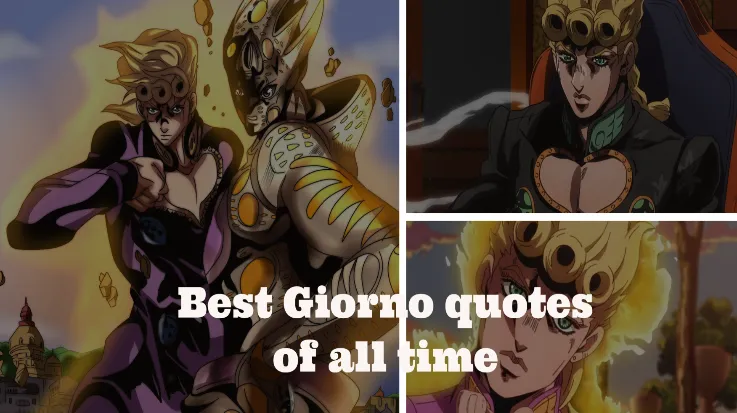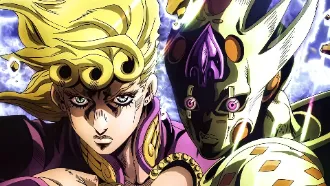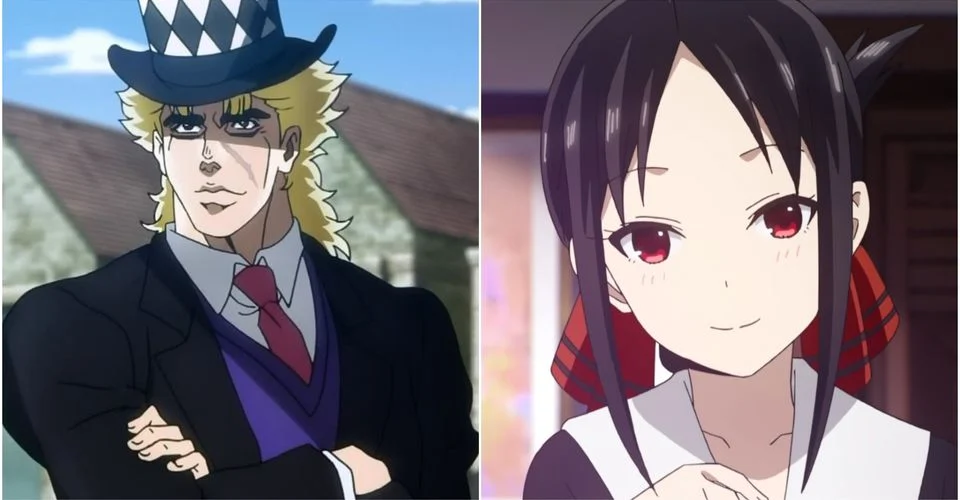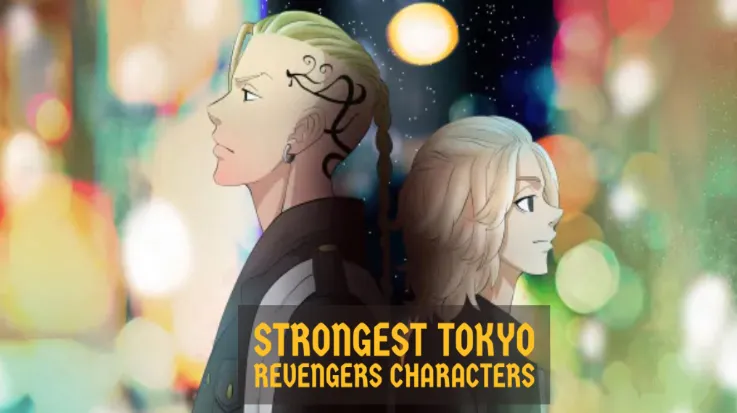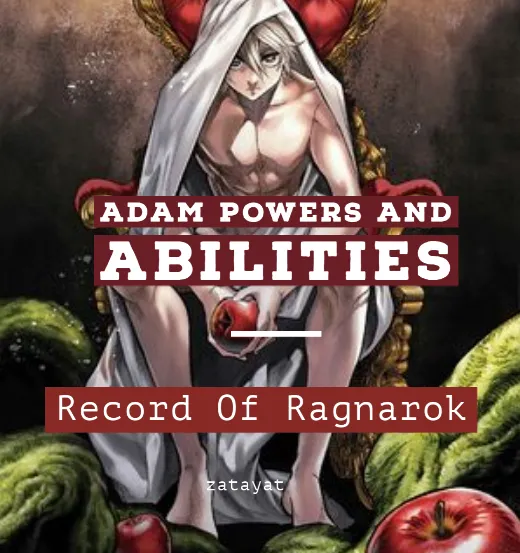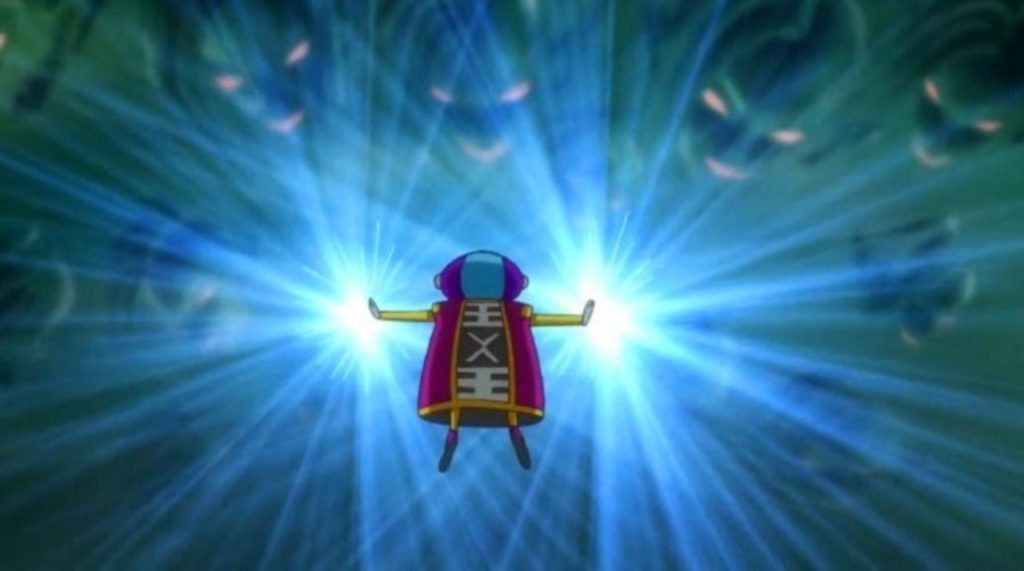29 Best anime: fantastic anime series and how to watch them Online For Free
PostedAt: Thu, Apr 1, 2021 6:24 PM
Want to watch the best anime that's streaming right now? This list is for you. Anime is bigger than it's ever been – but that means your time is more precious than ever for actually getting through your massive watch list.
New shows land constantly, while the new seasons of existing favorites never really stop coming. Thanks to sites like Funimation, Hulu, Crunchyroll and even Netflix, anime is nice and accessible. Still, in this list, whether you're a hardened otaku or a newcomer, we'll suggest 29 great anime shows for you to watch. We curate and update this list regularly with new entries from our panel of anime experts, to ensure everything here is up to scratch.
Keep in mind that the 'where to watch' section for each entry below only applies to the US, though Netflix original productions can be watched globally, and you'll find plenty of crossover on Crunchyroll and Funimation too.
29 Best anime: fantastic anime series and how to watch them Online For Free
Best anime on Netflix, Funimation, Crunchyroll, Hulu and more
- Violet Evergarden
- Kaze ga Tsuyoku Fuiteiru (Run with the Wind)
- 3-gatsu no Lion
- Re:Zero − Starting Life in Another World
- Aggretsuko
- Demon Slayer: Kimetsu no Yaiba
- Pokémon
- Your Lie in April (Shigatsu Wa Kimi No Uso)
- JoJo’s Bizarre Adventure
- Yuri!!! On Ice
- Steins;Gate
- Megalo Box
- Death Note
- Mob Psycho 100
- Ping-Pong the Animation
- Cowboy Bebop
- Neon Genesis Evangelion
- My Hero Academia
- Hyouka!
- The Promised Neverland
- Haikyuu!!
- Fullmetal Alchemist: Brotherhood
- Natsume's Book of Friends
- Samurai Champloo
- Tengen Toppa Gurren Lagann
- Hunter X Hunter
- Paranoia Agent
- Legend of the Galactic Heroes
- FLCL
Violet Evergarden
First aired: 2018 | Episodes: 13
Where to watch it: Netflix
One of Netflix’s first big anime, Violet Evergarden build a completely new world with its continent of Telesis. Here, two nations have been at war for years. When it comes to an end, a “war doll” is left behind – Violet Evergarden, an android who was built for the conflict, but started to develop feelings. Now that the war is over, she has to find a new purpose, and starts work for a postal company that also offers to have its employees essentially ghost-write letters for their customers. These letters are emotional affairs, and they often are emotions Violet is completely unfamiliar with, so she has to first listen to, and understand her client’s problems before she can help them with the process of healing emotionally.
This isn’t a light and fun series – it’s about the difficulty of facing up to emotions properly and getting closure. It’s about the horrors of war and the feeling of relief when you get closure. Violet Evergarden is excruciatingly beautiful therapy in 13 episodes, and if you’re looking for a good cry, this is your show.
Kaze ga Tsuyoku Fuiteiru (Run with the Wind)
First aired: 2018 | Episodes: 23
Where to watch it: Crunchyroll
Any good sports anime will leave you wired with tension, glued to each play and each moment of team bonding. Long-distance track racing however, is not necessarily a sport that makes people dizzy with adrenaline, and so Production I.G., a studio that really knows their sports (their other sport anime include Haikyuu!!, Diamond no Ace and Kuroko no Basket), takes things down a notch.
Meet Kakeru, a former ace runner who lost his friends and his club due to an altercation in high school. Now a university student, he gets invited to a downtrodden dormitory. It turns out that the dorm houses the involuntary members of a running club, all roped in by Haiji Kiyose, who wants them to participate in the Hakone Ekiden, the most prestigious university relay race in all of Japan.
It’s a ridiculous plan, but the series takes you all the way from a group of young men refusing to even entertain the idea to reluctant training and finally, the race. Each of them faces different personal issues, and if there’s one reason you likely won’t expect from a sports anime, it’s sobbing like a baby when one of them has a breakthrough. The emotional depth of Run with the Wind is just that great, and it’s nice to see an anime like this focus on the issues of young men, rather than high school students.
3-gatsu no Lion (March Comes In Like A Lion)
First aired: 2016 | Episodes: 44
Where to watch it: Crunchyroll
If you’re at a point in life when you don’t know where to go next, if you’re lonely and maybe a little disillusioned, 3-gatsu no Lion will at first be a bit of a gut punch. But 3-gatsu no Lion is one of those rare anime that face up to difficult emotions like this, and that makes it an absolute must-watch. It tells the story of the 17 year-old Rei Kiriyama, an elite shogi player who buckles under the weight of expectations fellow top players and his foster family place on him.
Rei never got to be a proper teenager, and he doesn’t know how to deal with the loneliness he feels as a result. A chance encounter with three girls is set to change this – the sisters Akari, Momo and Hinata and Momo are adamant to help Rei enjoy his life again and learn what it means to be part of a family.
It’s proper heartwarming stuff, even though Rei continues to come up to the limits of his own emotional intelligence. As he grows, 3-gatsu no Lion does a great job of making you root for him, both as a person and a shogi player.
Re:Zero − Starting Life in Another World
First aired: 2016 | Episodes: 41 (Ongoing)
Where to watch it: Crunchyroll
The isekai genre of anime is filled with characters who end up transported to another world and are instantly gifted with all of the strength any good power fantasy deserves. While there have been other isekai that twist that formula slightly, it's hard to beat the sheer terror that Re:Zero manages to convey so regularly.
It's tricky to discuss Re:Zero without spoiling any of it, but it's basically a very dark version of life in another world. The hero, Natsuki Subaru, is incredibly obnoxious at times, but his struggles throughout the series turn him into a fairly likeable protagonist.
There's a lot to love about the lore of the world as well, which is revealed steadily throughout each episode. This isn't an anime for the feint of heart, but for those willing to grit their teeth when things get tough, this is a must-watch.
Aggretsuko
First aired: 2016 | Episodes: 31
Where to watch it: Netflix
Adulting can be hard. In fact, it can often be downright exhausting. You’ve got countless bills to pay, office politics to deal with, and delicate social relationships to maintain. Sometimes you just want to let out a guttural death metal scream as a means of release... or risk imploding. It’s a good thing Retsuko, the timid titular character in this wonderful anime from Sanrio, can do exactly that.
Aggretsuko is frighteningly relatable, and a must-watch to anyone feeling downtrodden by the rigors of modern day life. It perfectly encapsulates so many situations we’ve all encountered at some point or another – from working under a tyrannical boss to trying to appease your matchmaking mother – Aggretsuko holds up a mirror to the rest of the world in a hilarious way, sometimes painfully so.
While Retsuko might seem like your typical mild-mannered employee, her secret lies in the fact she can wail like the best death metal singers on the planet, and it’s the only way she manages to stay sane. A cathartic and incredibly comforting anime, Aggretsuko really rocks.
Demon Slayer: Kimetsu no Yaiba
First aired: 2019 | Episodes: 26
Where to watch it: Funimation, Hulu
While its slick action is reminiscent of the best moments of shows like Naruto, Kimetsu no Yaiba stands out for how genuinely nail-biting it is. When his entire family is killed by demons, everything changes for Tanjiro Kamado, a young man living in Taisho-era Japan. His sister Nezuko seemingly survives, but transforms into a demon herself. Holding on to her humanity, Nezuko refrains from attacking Tanjiro, giving him hope for a cure. In order to find one, there’s nothing for it than to become a demon slayer.
The plot isn’t deep, but the sibling bond between Tanjiro and Nezuko gives the whole series a strong backbone. Tanjiro in particular is a truly likeable character, the kind of pure-hearted boy you wouldn’t expect in a largely unforgiving series. Kimetsu no Yaiba somehow manages to imbue a well-used setting with new life and boasts great production values all around, from the animation to voice acting and music.
Pokémon
First aired: 1998 | Episodes: 1,109
Where to watch it: Netflix, Amazon Prime Video
If you’ve never watched Pokémon before, you may not want to binge-watch the whole thing from the beginning. But watching it is you should do, and not just for nostalgic reasons. The Pokémon anime didn’t just take the world by storm by being a clever marketing tool for a video game series, it’s genuinely wholesome entertainment. It defined a whole genre of shows, all centred around young protagonists making fantastic friends, helping out where they can and of course duking it out in Pokémon tournaments.
Sure, Pokémon is a kids show, but the values it presents are enduring. Besides, the animation quality is really good and the seemingly never-ending variety of small monsters is a feat in itself.
Your Lie in April (Shigatsu Wa Kimi No Uso)
First aired: 2014 | Episodes: 22
Where to watch it: Netflix, Crunchyroll, Funimation
Kōsei is a young piano prodigy, but his mother’s death results in a breakdown so profound that he can no longer play. Mired in depression, there doesn’t seem to be anything he enjoys. One day, his friends manage to drag him to a local violin competition, where he listens to Kaori, a young girl with a captivating personality, who is eventually able to break him out of his rut. But Kaori isn’t without her own problems.
Your Lie in April is a highly emotional story about depression, love and illness. Rather than Kaori being a manic pixie dream girl that exists for Kōsei’s benefit, though, their relationship is characterized by its give and take dynamic. It’s a story about living life to its fullest, and trying to let go of regrets, without making light of how truly difficult things can get.
JoJo’s Bizarre Adventure
First aired: 2016 | Episodes: 152
Where to watch it: Netflix, Crunchyroll
Never has a title fit its series better than ‘Jojo’s Bizarre Adventure’, because at it’s core, bizarre is exactly what it is. From capturing Hirohoki Araki’s highly recognizable art style to plot lines and action that can often described as camp, it surely is an anime that evokes a solid love or hate reaction in many people.
Over the course of eight seasons, you follow different members of the Joestar family through several decades. It all starts in the late 19th century with English Aristocrat with the rivalry of Jonathan Joestar and his archnemesis Dio Brando. There are mixed martial arts, vampires, and very Japanese ideas of what England was like. There will be more supernatural occurrences than you can shake as stick at, as members of the Joestar family time and time again try not only to thwart the Brandos, but also save the universe with their mighty fists. It doesn’t make any sense, but it has to be seen to be believed.
Yuri!!! on Ice
First aired: 2016 | Episodes: 12
Where to watch it: Crunchyroll, Funimation
Anime has a complicated relationship with gay representation, even today. In the worst cases, it's a source of cheap comedy or exploitative titillation. That history makes Yuri!!! on Ice quietly revolutionary for its depiction of sexuality and gender. Yuri, a professional figure skater, returns back to his hometown after a crushing loss, only to be surprised when his idol appears and offers to coach him.
The relationship that blooms between them is complex and multifaceted. The show establishes archetypes—the preternaturally talented, capricious mentor; the quiet, hardworking student—before slowly dismantling them as each character is more fully revealed both to the viewer and to themselves. Ostensibly a sports anime, the show's beautifully choreographed, fluid figure skating sequences are less about the competition than the way it lets its characters reveal their hidden depths. Plus its opening theme is a banger, which is always nice.
Steins;Gate
First aired: 2011 | Episodes: 24 + 1 OVA and 1 alternate episode
Where to watch it: Netflix (UK), Funimation (US)
Adapted from the visual novel of the same name, Steins;Gate follows self-described mad scientist Rintaro Okabe and his band of misfit friends as they accidentally invent a device that can send text messages back in time. In its early episodes, you'd be forgiven for mistaking the show as a slice-of-life comedy – its main character an irritating mix of pompous jerk and goofball klutz that makes him pretty hard to like.
As the story progresses, though, Steins;Gate reveals a hidden depth. As you learn of the underlying traumas that haunt its characters, Okabe is revealed to be more sympathetic and noble than he first appears. And as their experiments with time travel take a dark turn, the show morphs into a gripping, urgent thriller that you won't want to put down.
Megalo Box
First aired: 2018 | Episodes: 13
Where to watch it: Crunchyroll
There's nothing particularly complicated about Megalo Box, which was created as a tribute to the boxing manga Ashita no Joe on its 50th anniversary. It's the future, and Megalo Boxing is a popular sport in which fighters compete wearing metal frames – called Gears – to augment their combat ability. In a bid to escape the slums, a young fighter gains entry into an elite tournament and wins unexpected popularity by fighting Gearless.
The reason to watch Megalo Box is its unparalleled, effortless sense of style. Its retro design, its eclectic soundtrack, its defiant end title card proclaiming "not dead yet…" There's a likeable cast of characters, sympathetic backstories and moral quandaries, to be sure, but the joy here is rooting for the underdog as he survives a series of brutal, frenetic battles.
Death Note
First aired: 2006 | Episodes: 37
Where to watch it: Netflix
When high school student Light Yagami discovers a book that can kill anyone whose name is written in it, he sets about creating his idea of utopia—offing high profile criminals in an effort to eradicate crime. As the legend of a mystical killer of killers grows across the world, an eccentric detective known only as 'L' sets about trying to bring him down. What follows is a fascinating game of cat and mouse, as Light and L battle to discover each other's identity.
Despite its fantastical concept, Death Note is an accomplished crime thriller. The convoluted rules of the Death Note itself are slowly unveiled, giving you the chance to appreciate the depths of Light's scheming. And the way L goads Light into making mistakes – even just revealing more information then he intended – is always a delight. The second season takes a drastic dip in quality, but those first 25 episodes are masterfully constructed.
Mob Psycho 100
First aired: 2016 | Episodes: 25
Where to watch it: Crunchyroll, Funimation
Mob Psycho 100 is simply the best action series of the past several years, thanks to the peerless animation of Studio BONES, imaginative characters, and a whole lot of heart. Mob is a middle school kid who happens to have incredible psychic powers, and he inevitably uses them to fight other psychics in outlandish battles. But Mob Psycho 100 deviates from most series of its kind by being a surprisingly deep character study, especially in its second season.
Mob is gentle to his core, and cares deeply about growing up into a better person without taking advantage of his psychic gifts. His mentor, Reigen, has no psychic powers but is an inveterate fraud and constant comic relief. Mob Psycho 100 manages to be surprising at every turn, smarter and more thoughtful than any of its contemporaries. And better-animated, too. The creator cut his teeth with the parody series One Punch Man, which is great. Mob is better.
Ping Pong the Animation
First aired: 2014 | Episodes: 11
Where to watch it: Funimation
Most sports anime are comfortable, trope-y hang-out shows with a fun cast of characters that are content to trundle along for a couple hundred episodes. Ping Pong the Animation, despite telling a conventional story about a pair of friends trying to become champion ping pong players, is nothing like that. And it probably looks like no anime you've ever seen. Director Masaaki Yuasa retained the art style of the manga, by acclaimed artist Taiyō Matsumoto, characters rough and exaggerated, scenes cut up into panels just like a comic.
At first it may even come off as ugly, but stick with it to see the animation blossom in expressive, surreal ping pong matches that reflect the psychology of the characters as much as the real action of the sport. It has style to spare, but it's ultimately the relationship of friends Smile and Peco that makes Ping Pong an all-timer.
Cowboy Bebop
First aired: 1998 | Episodes: 26
Where to watch it: Hulu, Funimation
The quintessential anime gateway drug. Cowboy Bebop is an ensemble series about a crew of misfit bounty hunters, scraping by as they meander around our solar system. The genre is as eclectic as the cast: generally it fits somewhere into the realm of a space western (think Firefly), but one episode it may veer off into treasure hunting, then the next into horror and the next yakuza drama.
Cowboy Bebop gets silly and weird on occasion, but is overall more adult than most anime series, and more subtle with its themes than Japanese writers tend to be. There's a good reason it's still beloved enough to get a live action Netflix adaptation more than 20 years after it aired. (And if you like jazz, be ready for the best soundtrack ever written for a TV show).
Neon Genesis Evangelion
First aired: 1995 | Episodes: 26
Where to watch it: Netflix
Evangelion is so monumental, so influential in the history of Japanese culture, that it's worth watching no matter what. Even if you don't like mecha shows about giant fighting robots, which is what Eva is at a high level. Even if you can't stand protagonist Shinji Ikari, a depressed teenager who can't deal with his hormones, his daddy issues and the insane save-the-Earth circumstances he finds himself in.
Even if you're disappointed that by the end, Evangelion doesn't really know how to follow through on the mysteries, themes, and characters it's developed along the way. There's just so much in Evangelion: it's dense with biblical imagery and psychoanalysis and what-the-hell moments that have inspired countless games and anime since the '90s. After watching Evangelion, we guarantee that there's at least one reference in something you've watched or played that will belatedly make you go ohhh, now I get it.
My Hero Academia
First aired: 2016 | Episodes: 80+ (Ongoing)
Where to watch: Hulu, Crunchyroll, Funimation
The best shonen (teen) action series currently going. My Hero Academia is the anime take on the X-Men, except most humans, rather than a rare few, develop Quirks, which are strange powers. The series follows a group of high school kids training to become the next wave of heroes, and thanks to a fun cast and brisk pacing, it's a prime candidate for binging.
My Hero Academia is unabashedly earnest, which in the wrong hands could end up trite, but here it just works, and will likely have you pumping your fists when protagonist Midoriya and his classmates fight with all their hearts. Maybe the most surprising thing about My Hero is that it stars an honest-to-god smarter, more nuanced take on Superman than we've ever seen in a movie or TV adaptation of the DC hero. All Might is a treasure.
Hyouka
First aired: 2012 | Episodes: 22
Where to watch: Funimation
Hyouka is a slice-of-life show about a group of high school friends in an after-school club that's ostensibly about literature, but in truth is mostly about solving mysteries. Its real depth quietly sneaks up on you: it's lighthearted and breezy at first, finding delight in tiny everyday mysteries (who's the murderer in an unfinished movie? Who's stealing things from around the school?).
But there's a lot more to these characters than it appears. The joy of the show is watching them grow up and get to know each other in small steps. Most anime in Hyouka's genre tends to be full of over-the-top emotion and grand gestures, but this show revels in the ordinary, and that makes spending time with the characters so much more rewarding.
The Promised Neverland
First aired: 2019 | Episodes: 12 (Ongoing, season 2 October 2020)
Where to watch: Hulu, Crunchyroll, Funimation
It's hard to describe The Promised Neverland without giving away at least one of its many shocking twists, but it's the anime version of a page-turner—every episode ends with the tension dialed to 11, and you simply have to see what happens next. What briefly seems like a heartwarming story about the kids in an idyllic orphanage quickly turns into a psychological thriller, as the three oldest children try to plot an escape.
The Promised Neverland loves to show how smart its characters are with I knew that you knew that I knew one-upmanship, but hell, the cliché works when the characters are this much fun to watch together, and the twists come this fast and furious. Watch a couple episodes, and it's hard not to immediately devour the rest of the series.
Haikyu
First aired: 2014 | Episodes: 65 (Ongoing)
Where to watch: Crunchyroll, Netflix (Only 2/4 seasons), Hulu (Only 2/4 seasons)
Don't mind don't mind! is what the members of Haikyu's high school volleyball team say to each other whenever they lose a point, and that positivity radiates throughout the entire show, which casts volleyball as the most thrilling sport in history. Haikyu is a conventional sports anime, but tuned to perfection, with a cast of underdogs bonding over their love for the sport as they compete against increasingly skilled rival schools.
The show really works because of the dichotomy of pint-sized, endlessly energetic spiker Hinata and arrogant setter Kageyama, who make an unbeatable pair as they learn to work together. We promise you don't have to care about volleyball to love this show. They're just such good boys, and they deserve to win.
Fullmetal Alchemist: Brotherhood
First aired: 2009 | Episodes: 64
Where to watch: Netflix, Hulu, Funimation
You can't go wrong with either animated version of Fullmetal Alchemist, but the second adaptation of the manga, Brotherhood, is ultimately the better of the two. It stays faithful to the manga's plot and moves briskly through an imaginative story that weaves together politics, mystery, war, and science (or, let's be real, basically magic). The heroes and villains using alchemy to reshape their bodies and the environment makes for spectacular and clever fights, and you can count on animation studio Bones to always make it look great.
Brothers Alphonse and Edward Elric are the anchor, a pair of wunderkinds searching for a mythical philosopher's stone to repair the damage they caused to themselves in a transmutation gone horribly wrong. What starts as a grand adventure slowly and confidently expands into a deeper story, as concerned with the morality of war and political corruption as it is flashy action scenes.
Natsume's Book of Friends
First aired: 2008 | Episodes: 74
Where to watch: Crunchyroll
Growing up hasn't been easy for Natsume, because he's an orphan, and also because he can see yokai, or spirits, that no one else can. This makes him a bit of an outcast, but when he inherits a book from his late grandmother, his life suddenly makes a lot more sense. She could see spirits, too, and "bound" many of them to her in the Book of Friends, which is why they now hound poor Natsume.
The simple premise of the show is that Natsume seeks out these spirits in order to restore their names to them and unbind them. It's a show that manages to be melancholy and heartwarming from episode to episode and even moment to moment. It's a slice-of-life series with a touch of the supernatural, but what makes it great is how it uses those supernatural encounters to tell human stories. Getting to watch Natsume grow across many seasons keeps the formula from feeling rote.
Samurai Champloo
First aired: 2004 | Episodes: 26
Where to watch: Hulu, Funimation
Director Shinichiro Watanabe's follow-up to Cowboy Bebop is very nearly as good. It trades space for samurai-era Japan, and jazz for wonderfully anachronistic hip hop. Samurai Champloo follows the same loose structure as Cowboy Bebop, with a trio of misfits – wild ronin Mugen, quiet and precise ronin Jin, and chipper young girl Fuu – encountering all kinds of oddball situations as they travel across the country.
Most episodes are standalone adventures, but Fuu's central quest to find 'the Samurai who smells of sunflowers' gives it structure, popping up every so often. The characters all have their own mysteries that slowly unravel over the 26 episodes, and the action scenes are some of the most stylish samurai battles ever animated. As in all Watanabe's shows, the music really sets the tone for the show, and his use of modern hip hop gives Champloo a wholly unique tone.
Tengen Toppa Gurren Lagann
First aired: 2007 | Episodes: 27
Where to watch: Netflix, Hulu, Crunchyroll
No show better exemplifies the Japanese theme of fighting spirit better than Gainax's exuberant, over-the-top mecha masterpiece Gurren Lagann. This is the same animation studio that made Evangelion in the '90s, but the two couldn't be more different in how they use giant robots. Gurren Lagann begins with humanity cowering in underground societies, scared of the surface above. It ends with giant (and we mean giant) robots in space throwing literal solar systems at one another.
Every step of the way it's a story about the power of the human spirit, having the strength to never give up, and using that will – plus a giant fucking drill – to pierce the heavens. The rare show that can make your heart soar with excitement and make you cry within the same episode. Every time you think it can't get more dramatic, more emotional, more over-the-top, it will exceed your expectations. The absolute pinnacle of unrestrained anime action.
Hunter X Hunter
First aired: 2011 | Episodes: 148
Where to watch: Netflix, Crunchyroll, Hulu
A beloved adaptation of one of the most beloved shonen manga of all time. Hunter X Hunter starts out conventionally: young boy Gon goes on an adventure and meets an odd cast of characters undertaking the Hunter's Exam, a ridiculous test of endurance, smarts, and fighting ability that leaves most dead and a select few licensed to basically go anywhere in the world and do anything they want.
It's fun from the get-go, a breezy action series with likable characters, especially the eternally upbeat, pure-hearted Gon. It's a slow burn to get to the stuff that elevated Hunter X Hunter to an all-time genre classic, with far more care paid to character development and psychology than who can out-punch who. It's an ever-evolving series, and especially adept at planting seeds that will pay off in big, revelatory moments a dozen hours down the line.
Paranoia Agent
First aired: 2004 | Episodes: 13
Where to watch: Funimation
A mysterious boy with roller blades and a bent metal bat starts attacking people on the streets of Tokyo, at crisis points in each of their lives. What at first appears to be a horror show is far more than that. Creator Satoshi Kon, who died from cancer tragically young, is famous for films like Perfect Blue and Paprika that explore the human psyche and brilliantly use techniques of animation to blur the lines between what's real and what's imaginary.
Paranoia Agent is a series of dense character studies, at first seemingly unrelated, that link together into a larger story. It's weird, it's funny, it's creepy, and there's just nothing else like it. Except, of course, Satoshi Kon's movies. Chase them down once you devour Paranoia Agent.
Legend of the Galactic Heroes
First aired: 1988 | Episodes: 110
Where to watch: Hidive
There's no series quite like Legend of the Galactic Heroes, a sprawling space epic made across more than a decade. It doesn't focus on action, but instead the politics and commanding officers of the Free Planets Alliance and the Galactic Empire. The cast is huge, though its stars are military leaders on both sides, the Empire's Reinheart von Lohengramm and the Alliance's Yang Wen-Li.
Legend of the Galactic Heroes examines its long-running war from many angles: the tactics of battle, the human lives lost, the systems of government they fight for, the greatness and fallibility of heroic figures. There are other anime series (based on long-running manga) that run for hundreds upon hundreds of episodes, but they're essentially designed to run forever, keeping characters largely the same. That is not Legend of the Galactic Heroes.
FLCL
First aired: 2000 | Episodes: 6
Where to watch: Hulu, Funimation
There are a couple ways to tackle coming-of-age stories. You can explore the conflicting emotions of teenagers and their relationships gradually, showing their growth across many methodical episodes. Or you can have your main character grow a literal horn out of his head because he's horny, represent the power of adulthood as a badass fighting robot, and use guitars as blatant symbols of sexuality.
This, of course, is FLCL, a series so heavy with surreal symbolism that on a first viewing, a lot of it probably just comes across as wacky and random. It is wacky – but none of it is random. It all means something, from the moment the wild, pink-haired, Vespa-riding Haruko smashes tween Naota in the head with her guitar and sets off his journey through adolescence. FLCL doesn't realistically show what it's like to go through puberty, but you don't have to understand all of it to realize it brilliantly expresses what it feels like. Wild, overwhelming, confusing, sad, empowering – it's all in there. And the robot's really cool, too.
There are numerous animations produced and released all over the world every year. Here, anime, which is the Japanese term originating in Japan and especially means the animations made in Japan.
It is said that the first Japanese animation was made and released in 1917. Speaking of the earliest famous anime in Japan, Astro Boy (a.k.a. Mighty Atom) was released in 1963 as the first anime series aired on TV. Around hundreds of new anime are aired on TV and distributed to the movie streaming platforms and come to the screens every year, and the number of must-watch anime is going on increasing year by year.
The industry of anime has prospered substantially in Japan partly because the country has other Japanese pop cultures such as manga, video games and light novels. Some popular anime are adaptations of manga, video games, light novels and other media. And, anime has flourished worldwide so rapidly since anyone can access the Japanese animations with English dubs and subtitles.

